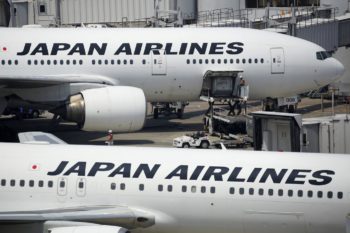
China Eastern Airlines Corp Ltd and Japan Airlines Co Ltd (JAL) said on Thursday they would form a joint venture (JV) to capitalize on a boom in Chinese tourism.
This is first of such deal between a Chinese and Japanese carrier.
The pair, which already have a code-sharing agreement, said the venture will allow them to coordinate flight times, offer more connecting flights, lower ticket prices and share revenue on routes they both fly such as Tokyo-Shanghai.
They aim to begin operations in the first half of 2019 pending approval from competition regulators.
“This partnership will generate more passenger traffic between the two countries and open up commercial opportunities,” said JAL Chairman, Yoshiharu Ueki.
The tie-up comes at a time of relative calm between two countries whose relationship has been historically strained. Six years ago, a territorial dispute sparked anti-Japanese protests across China and a temporary drop in Chinese visitors to Japan.
Chinese tourism to South Korea and Taiwan has similarly fallen in recent years during times of diplomatic crises.
“We understand we may have political risks in China,” said a spokeswoman for JAL. “We don’t have any backup plans. But we believe we share any difficulties between us – not only political but also others. We think that is joint business.”
A joint venture in the airline industry refers to an agreement to coordinate aspects of business such as scheduling and pricing. The JAL spokeswoman also said there were no plans for the airlines to make equity investments in each other.
China has been experiencing a boom in tourism in tandem with rising household income. Neighboring Japan has been one of the main beneficiaries, with the Chinese comprising the largest group of visitors to the country.
JAL is part of the one-world airline alliance whereas China Eastern is a member of the rival SkyTeam group. Cross-alliance deals have become increasingly common as airlines seek financially beneficial bilateral tie-ups.
Agency Report